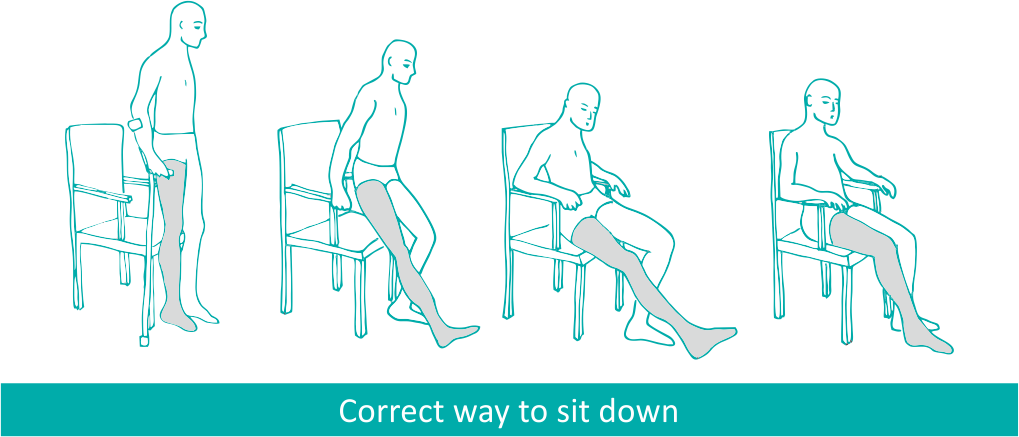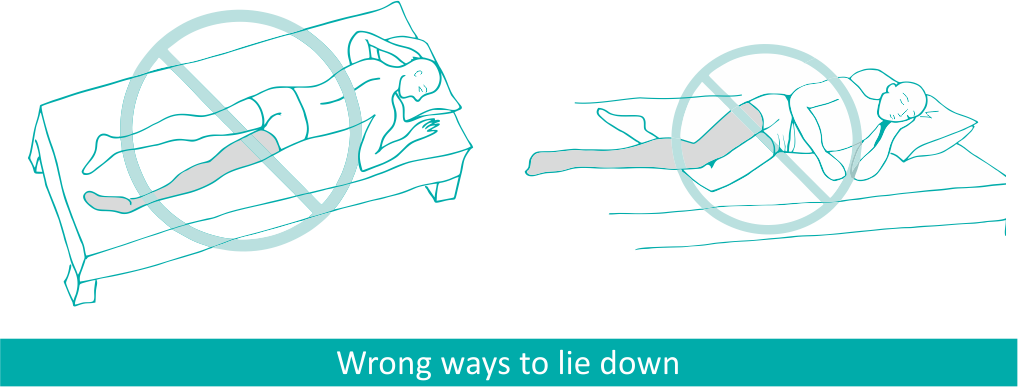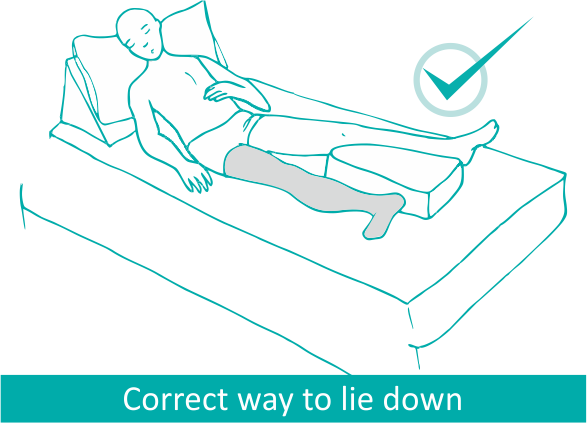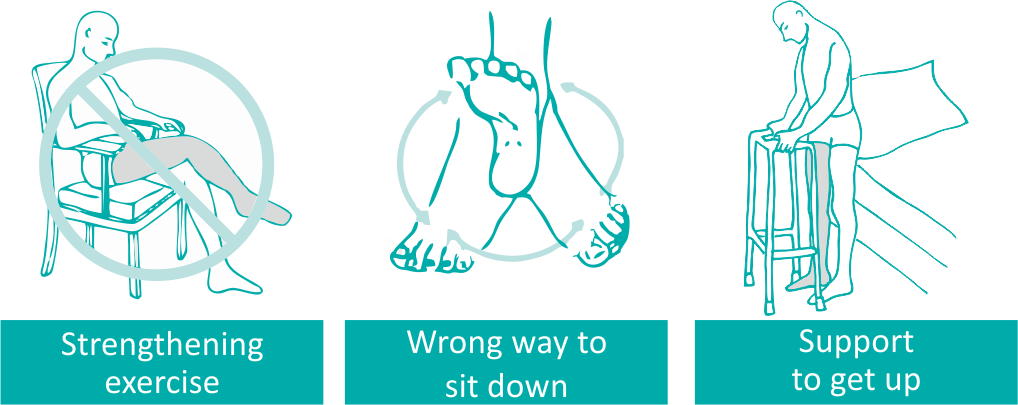Warning signs
- Sudden pain in the inguinal region (hip area starting from the end of the abdomen to the beginning of the legs) and in the lateral side of the hip, radiating from the thigh to the knee.
- Inability to move your hip.
- Leg shortening and rotation.
Diet
- Consume dairy products and foods derived from them.
- Use olive oil for the preparation of dishes.
- Cook legumes.
- The consumption of meat or fish should be 200 g. per day, approximately.
- 2 units of eggs, three times a week.
- Vitamin/calcium supplements (consult with doctor).
Bath and hygiene
- Ask for help (bathing, using the toilet, etc.).
- Use toilet lift and chair in the shower
Considerations at bedtime
- Sleep on your back during the first few weeks, with a cushion between your legs.
- Do not sleep or rest on your stomach.
- It is not recommended to lie on your side in the early stages of recovery
Specific recommendations
- Sit in a chair with arms that help to get up.
- Sit with feet at least 6 cm apart.
- The affected leg should always face forward.
- Perform therapy exercises as indicated by the attending physician.
- Bring the operated leg forward when standing or sitting.
- If legs become swollen when walking, lie down with feet elevated.

- Wear elastic stockings as indicated by the attending physician.
- Climb the stairs using handrails, but do not climb until the doctor’s indication.
- If traveling by car, stop every hour to get out of the car and walk a bit to increase blood flow to the legs.
- Do not wear high heels.
- Do not sit cross-legged.
- Do not walk on wet or waxed floors.
- Do not bend forward or side to pick up objects.
- Do not sit on very low chairs or sofas.
- Do not practice sports until the doctor’s indication.
- Do smooth movements.
- Keep a quiet, clean, and orderly environment.
- Avoid lying on your side; remember to keep your hips aligned.
- Move the ankles to help circulation.
- Use a walker; you will be able to walk more safely.
- Do not climb stairs.






